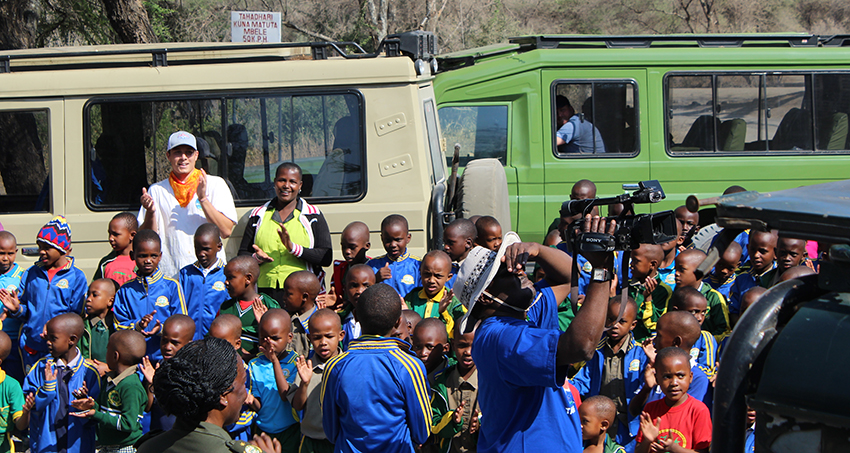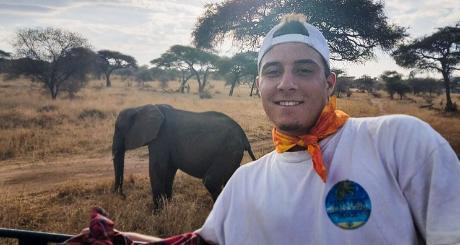Stephen Koester ’19 Finds His Future in Tanzania
In a study abroad semester, an athlete trains for his dream career.By: Shelley Drozd Tuesday, April 3, 2018 11:45 AM
 Photos courtesy of Stephen Koester '19
Photos courtesy of Stephen Koester '19Baseball brought Stephen Koester '19 to Muhlenberg as a recruit and prospective student. He thought the campus was beautiful. But it was the study abroad presentation that really sealed the deal.
For the young boy who grew up loving animals—and wild elephants in particular—the opportunity to spend a semester in Tanzania proved irresistible. "I intend to work in research someday, studying animals and their behavior. So study abroad seemed like a good way to see if that work would be a fit for me,” says Koester.
Armed with letters of recommendation and the support of Karen Tuerk, a lecturer in environmental science, and his baseball coach Tod Gross, Koester applied for and was accepted into the School for Field Studies program (SFS) for the fall semester of 2017.
Research that solves real problems
In a culture where livelihoods depend on the ability to raise crops and livestock, people pay close attention to rainfall. So when Koester and his fellow student researchers interviewed Tanzanians about changes in climate over the last decade, two consecutive years of unprecedented fall drought topped everyone’s concerns.
The community members Stephen met with understood that their actions could affect the environment. So with almost scientific intuition, they considered the impacts of their behaviors.
Deforestation is one pressing problem. The firewood that the community depends on to heat homes and cook food also emits fossil fuels into the atmosphere. Fewer trees also meant less protection from pollution.
So to ensure the sustainability of future forests, the community established a tree nursery. The students helped out by carrying buckets of water from the community water source and by watering the tree plants and seeds. “The people I worked with want to create a neutral carbon footprint because they don’t want to hurt the environment,” says Koester.
Other research projects studied the diversity and abundance of species in national parks and protected areas. Koester specifically looked at local perceptions of wildlife management practices—a hot topic, given the havoc inflicted on local farms by the native species.
“Technically, all of the wildlife and lands belong to the government of Tanzania, so the people want the government to pay for the damage the animals cause to their property,” says Koester. “But they say that what they get is consolation, not compensation.”
Best of all to Koester was studying the animals themselves. There were frequent transects in safari cars and weeklong camping expeditions, all to record in the age, sex and behavior of the animals and how they responded to the researchers’ presence. The students’ data added to a multi-year study their adviser aims to publish in The Journal of Biological Conservation.
In addition, the students shared the results of their research in a presentation to the community.
 To Tanzania, with love
To Tanzania, with love
Koester expected hard work and exciting adventures from his study abroad experience. What surprised him was the community camaraderie—the feeling of love between people that was shared with the students.
Fast friendships formed with host families and drivers. Students got to know the local children during the construction of a running water system at a primary school. Games of soccer and volleyball occupied the village downtime. Everyone still keeps in touch through social media.
Back at school, Koester juggles a double major in biology and environmental science while manning both outfielder and catcher positions for Mules Baseball. Given the rigor of his academic career choices, he offers this advice to future student-athletes: “Put your mind to it. If you love the sport, you’ll manage the workload. It’ll be well worth your while.”
